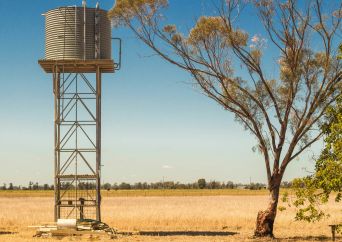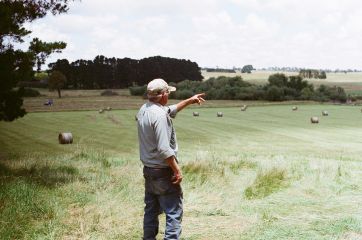
Are you a rural property owner in Queensland? Are you looking into a sustainable water solution? Then look no further! At Darr Drilling, we understand the importance of reliable water access. We know how important this is for agricultural and livestock use and even for domestic use! We want to help you and walk you through everything that you’ll need to know about water bore drilling on your rural property in Queensland.
There’s a lot that goes into this, like the legal requirements, environmental considerations, the drilling process itself, and the maintenance, but of course, there are many benefits for rural property owners. So, let’s dive in!
Understanding Legal Requirements
Before starting water bore drilling, it’s going to be incredibly important to familiarise yourself with all of the legal requirements and regulations involved in governing groundwater extraction in Queensland. Permits and licences just might be required, plus you need to keep in mind the restrictions on drilling, like the depth and the location. But why is this so important? Well, it’s all about protecting the aquifers and the natural water sources.
So, if you’re considering this, it’s going to be best to consult with local authorities or a licensed drilling company, as they can help ensure compliance with regulations. It’s pretty much the best way to know for a fact that you have 100% accurate information (as sometimes information online can be outdated).
Environmental Considerations
At the end of the day, everyone needs to think about sustainability and protecting the ecosystem. So, when you’re considering drilling for water on your rural property, you have to consider multiple considerations, like groundwater quality and aquifer sustainability. There might even be other potential impacts on the surrounding ecosystem that need to be evaluated, too.
It’s going to help to reach out to environmental experts and conduct thorough site assessments. This alone can drastically help minimise environmental risks and ensure responsible water extraction practices.

The Drilling Process
The water bore drilling process involves several stages: site selection, drilling, casing installation, and well development. Experienced drilling professionals use special equipment and techniques to penetrate the ground and access underground water sources. This isn’t some DIY operation, either. Besides, factors like geology, hydrology, and the depth of the water go into the drilling process.
Maintenance
Once the water bore is installed, a schedule of regular monitoring and maintenance will need to be established. The schedule itself needs to be consistent because this is the only way to ensure that the performance stays optimal and that the longevity stays, too, of course. But what would this consist of?
Well, there needs to be inspections, water quality testing, and checks on the equipment itself; it’s all about seeing if there are any issues early on since this can completely prevent costly repairs or downtime. There are usually recommended maintenance schedules, so that alone will give you an idea of how often inspections are needed and the maintenance concerns themselves.
How Does this Benefit Rural Property Owners?
For those with rural property in Queensland, how could this actually be beneficial? Well, like what was briefly stated before, this is both a reliable and sustainable water supply option. It’s ideal for agricultural irrigation, livestock water, and, of course, for domestic use, too. This allows rural property owners to reduce their reliance on surface water sources. It also helps mitigate droughts, and it’s ideal if you want more self-sufficiency for your property, too.
Cost Effectiveness
While the initial investment in water bore drilling may seem significant, this upfront cost will pay for itself in the long run. When it comes to long-term water supply needs, this can ultimately be one of the best cost-effective solutions. Compared to alternative water sources, such as rainwater tanks or trucked water deliveries, bore drilling offers more reliability while still being affordable over time. Just think of it this way: there’s lower operational cost and great water security.
Enhancing Property Value
Access to a reliable water supply can significantly enhance the value and productivity of any rural property. Properties with water bore infrastructure in place are more attractive to prospective buyers and command a higher sale price. Plus, the increased water availability can support expanded agricultural operations and diversification opportunities- which can boost the property value even more.
Environmental Impact
What matters most is doing your part to help the environment and cause less damage where possible. While, at first glance, water bore drilling might seem negative, that’s further from the truth. In fact, water bore drilling actually has a positive impact on the surrounding communities and the environment! So, it reduces the pressure on surface water sources, plus groundwater extraction can help preserve natural ecosystems and support biodiversity.
Furthermore, an increased water supply can have the potential to stimulate economic growth and development in rural areas (especially if multiple rural Queensland properties are doing this), thus contributing to community resilience.
At Darr Drilling, we’re completely committed to providing expert guidance and professional services to help you achieve your water supply goals. Learn more about our water bore drilling services and take the first step towards securing a reliable water source for your rural property!
